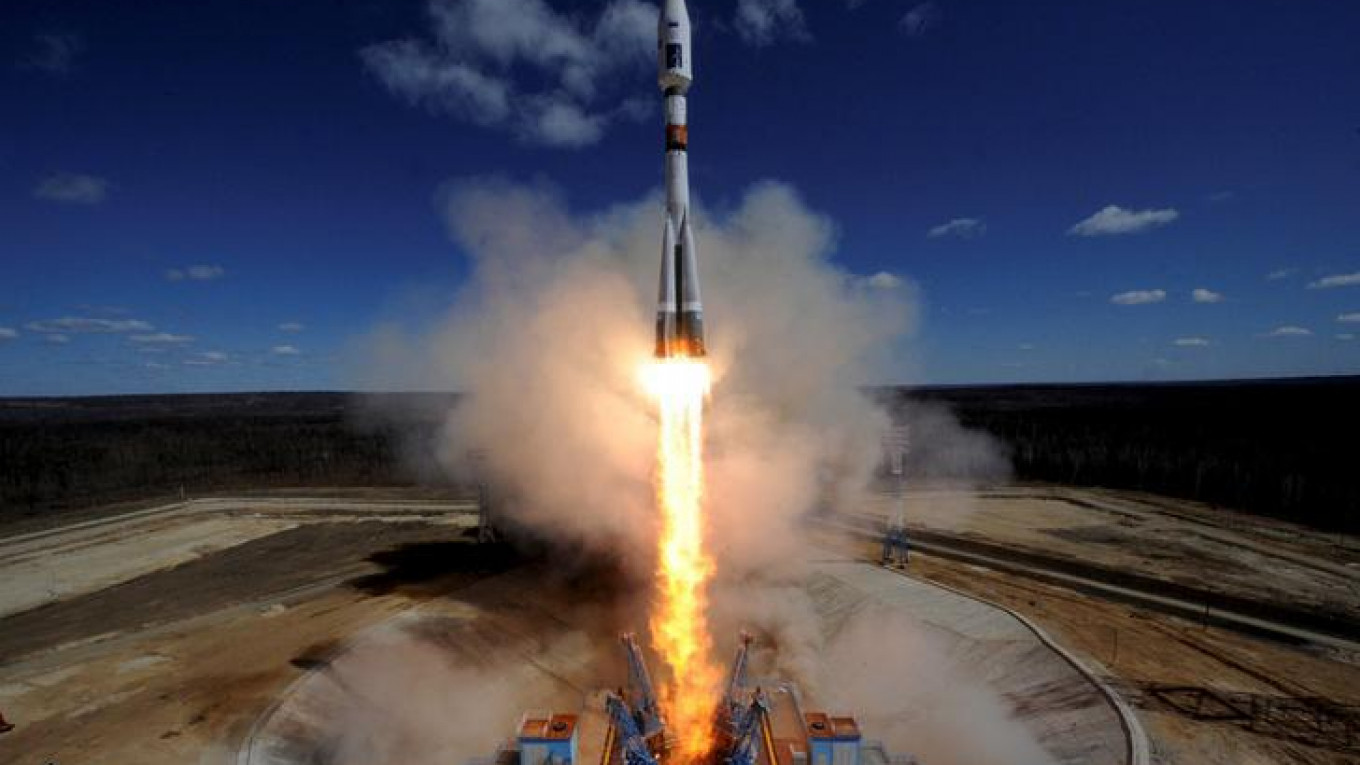In April, President Vladimir Putin made the 5,600 kilometer trek from Moscow to Russia's far eastern Amur region to witness the first launch of a rocket from his $3 billion Vostochny Cosmodrome. The facility, mired in delays and corruption scandals, was something of a pet project for Putin. But his visit, intended to be a moment of pomp and circumstance for the national space agency, was a bust.
When Putin arrived, he found that a viewing stand intended to give the Russian president and other guests of honor a clear view of the launch pad was not completed. Putin instead had to watch the launch from the safety of a nearby trench. To make matters worse, the rocket's onboard computers detected a problem about 90 seconds before launch, forcing an abort.
The launch went ahead the following day, but the drama surrounding Vostochny continues. Over the past two years, Putin has become increasingly involved in the project. The Investigative Committee and Federal Security Service (FSB), on Putin's personal order, monitor the site regularly for graft and incompetence. The facility is not yet completed, and won't be until at least the early 2020s.
On Nov. 17, the Kommersant newspaper reported that Russia's Investigative Committee had opened a new criminal investigation based on evidence gathered by the FSB. According to the Investigative Committee, some 50 million rubles ($770,000) are missing from funds allotted for the construction of a still-unfinished business center, a five-star hotel, and – most importantly – Putin's viewing platform.
Construction of this part of the sprawling Vostochny Cosmodrome project began in 2013. The prime contractor, Ipromashprom, was given 143 million rubles to complete the project. In the end, the work was handed off to another construction firm, Mikos, which lacked the capacity to carry out such work.
The Investigative Committee found that Mikos' general director, Sergei Ostrovsky, has ties to Roscosmos and Ipromashprom. He signed fake acts of acceptance upon which his company received 70 million rubles in January 2014. He used 10 million rubles to hire personnel – some legitimate architects, others simply friends – to conduct the necessary work. The remaining 60 million were transferred to shell companies and cashed.
Ostrovsky has already been sentenced to five years in prison for embezzlement as part of another criminal case at Vostochny.
A Message from The Moscow Times:
Dear readers,
We are facing unprecedented challenges. Russia's Prosecutor General's Office has designated The Moscow Times as an "undesirable" organization, criminalizing our work and putting our staff at risk of prosecution. This follows our earlier unjust labeling as a "foreign agent."
These actions are direct attempts to silence independent journalism in Russia. The authorities claim our work "discredits the decisions of the Russian leadership." We see things differently: we strive to provide accurate, unbiased reporting on Russia.
We, the journalists of The Moscow Times, refuse to be silenced. But to continue our work, we need your help.
Your support, no matter how small, makes a world of difference. If you can, please support us monthly starting from just $2. It's quick to set up, and every contribution makes a significant impact.
By supporting The Moscow Times, you're defending open, independent journalism in the face of repression. Thank you for standing with us.
Remind me later.






